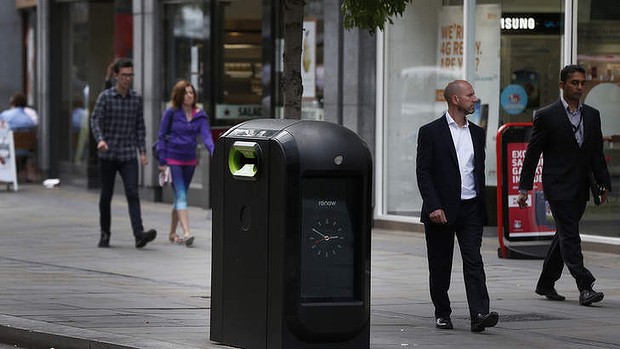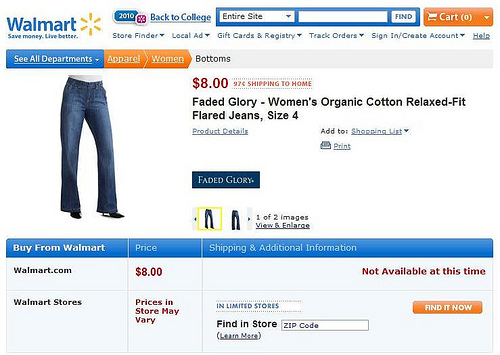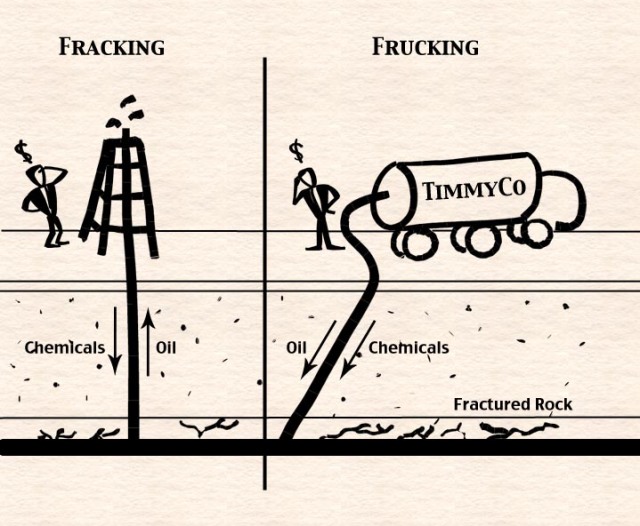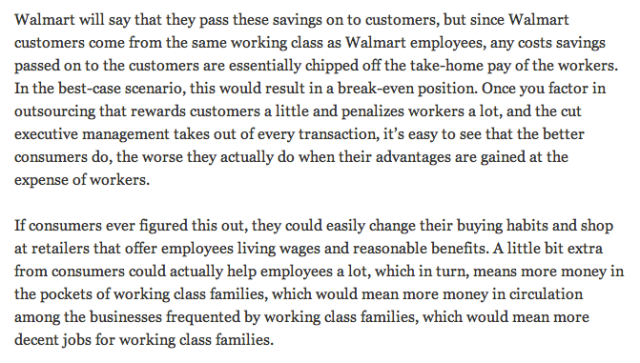Recently, RyanAir CEO, Michael O’Leary, told investors that he wanted his employees to be nicer to customers. It seems that RyanAir employees were getting a nasty reputation for bad hospitality, which one would expect when they are rewarded for being painstakingly aggressive on charging fees to customers. “If it’s a millimeter over size, just get over it,” O’Leary told investors at RyanAir’s annual meeting. “We are not trying to penalize people for the sake of a millimeter.” Unsaid is what they would want employees to do if luggage was over size two millimeters.
Occasionally, CEOs will make an announcement acknowledging some sort of fault of the company, usually a negative effect of a strategic vision. They pledge to change the direction of the company, but they never do. Why? Because the fault is usually a negative effect of a successful strategic vision. Jamie Dimon can pledge that J.P. Morgan will have more oversight of trading, but even when they lose $6 billion on a single trade, they earned $97 billion in revenues last year. To change their aggressive profiteering behavior would require they change their philosophy, and there’s obviously nothing wrong with that.
And so it is in this case. RyanAir’s reputation is built on cheap upfront airfare packaged offset with cost-manufacturing fees. Customers are well-versed in this revenue structure, and if they truly didn’t like it, they would fly with other airlines. But they don’t. Last year, RyanAir flew more international routes than any other airline. Whatever they are doing is working.

“And as a final point to our Sith investors, huuh-huuh, I think we should be nicer to Jedis, huuh-huuh. Just checking, are there members of the press here to record this, huuh-huuh?”
Despite what O’Leary says, RyanAir will not be any more hospitable. “Nice” is a great marketing strategy, but a terrible business strategy. Thousands of business pitch their prospective customers on how easy they are to work with or how helpful they are, but few companies ever made money on actually doing it. That’s because consumers are a blood-thirsty lot who will try to extract every nickel out of a business, and while nice businesses may not be any more gullible, they certainly aren’t as painful for penny-pinching customers to bleed dry.
That’s why TimmyCo will be instituting two customer service plans. For a small fee of $5, customers can speak to a “nice and helpful-ish” customer service agent. If that fee seems excessive, they may still talk to a customer service agent for free, but that one will be “rude and less helpful-ish.” Our expectation is that most people will opt for rude in order to save a few bucks.
So, if RyanAir doesn’t plan on being nicer, why would O’Leary tell everyone they would be? “It takes a mean CEO to run a mean company,” a spokesperson for TimmyCo stated, “and what do mean CEOs do? They lie. Mean CEOs are never sorry.”
* help ful – ish (adj.) – possessing the appearance of being helpful without actually being helpful
Those you can trust:
RyanAir is the rare company where employees can punish customers. Usually, it’s the other way around.
Michael O’Leary is one of our favorite CEOs. We’d ask for an autograph, but even we’re afraid of what he would charge us.
Those you cannot trust:
What nice gets you: Most people consider REI to be a “nice” company. As a nice company, they would take back lifetime returns on faulty merchandise. Seems that customers abused that policy, and now it is just a one-year policy.















